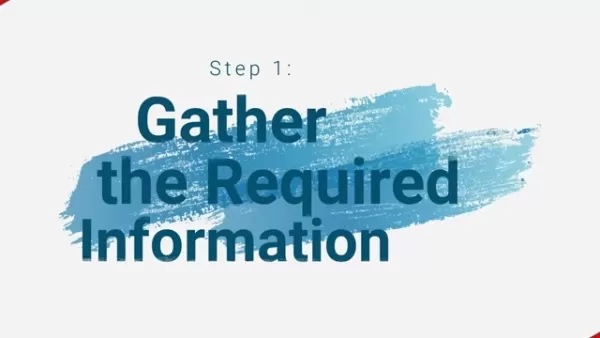How AI could supercharge your glucose monitor - and catch other health issues

At Stanford, researchers are harnessing the power of artificial intelligence (AI) to enhance our understanding of diabetes, particularly in diagnosing this widespread condition. This could pave the way for more personalized and accessible healthcare solutions.
Diabetes is typically categorized into Type 1 and Type 2, but recent discoveries have revealed crucial subtypes within Type 2 diabetes, which accounts for 95% of cases. These subtypes help predict the risk of developing associated conditions such as kidney, heart, or liver diseases.
Tracey McLaughlin, MD, an endocrinology professor at Stanford, pointed out the challenges in understanding diabetes physiology. "Understanding the physiology behind [diabetes] requires metabolic tests done in a research setting, but the tests are cumbersome and expensive and not practical for use in the clinic," she explained.
By analyzing data from glucose monitors, Stanford researchers have developed an algorithm capable of identifying three out of the four most common Type 2 diabetes subtypes. This algorithm outperforms traditional metabolic tests, accurately predicting metabolic subtypes like insulin resistance and beta-cell deficiency about 90% of the time.
Identifying a patient's specific subtype can significantly influence the effectiveness of treatment. It allows doctors to tailor medication plans and allocate resources more efficiently, potentially lowering healthcare costs. The beauty of this approach lies in its use of data from glucose monitors, which patients often already use, eliminating the need for more complex clinical setups.
"This matters, because depending on what type you have, some drugs will work better than others," McLaughlin emphasized. "Our goal was to find a more accessible, on-demand way for people to understand and improve their health."
This innovation could be a game-changer for the nearly 13% of the US population living with diabetes. By using AI to extract valuable insights from data collected by wearables, this method could dramatically improve treatment options and outcomes, especially for those without easy access to healthcare due to geographical, financial, or other constraints.
Following the spotlight on over-the-counter glucose monitors at CES 2025, where two such devices were recognized as Honorees in Digital Health, this study represents a significant leap forward in making health technology more accessible to everyone.
Related article
 Topaz DeNoise AI: Best Noise Reduction Tool in 2025 – Full Guide
In the competitive world of digital photography, image clarity remains paramount. Photographers at all skill levels contend with digital noise that compromises otherwise excellent shots. Topaz DeNoise AI emerges as a cutting-edge solution, harnessing
Topaz DeNoise AI: Best Noise Reduction Tool in 2025 – Full Guide
In the competitive world of digital photography, image clarity remains paramount. Photographers at all skill levels contend with digital noise that compromises otherwise excellent shots. Topaz DeNoise AI emerges as a cutting-edge solution, harnessing
 Master Emerald Kaizo Nuzlocke: Ultimate Survival & Strategy Guide
Emerald Kaizo stands as one of the most formidable Pokémon ROM hacks ever conceived. While attempting a Nuzlocke run exponentially increases the challenge, victory remains achievable through meticulous planning and strategic execution. This definitiv
Master Emerald Kaizo Nuzlocke: Ultimate Survival & Strategy Guide
Emerald Kaizo stands as one of the most formidable Pokémon ROM hacks ever conceived. While attempting a Nuzlocke run exponentially increases the challenge, victory remains achievable through meticulous planning and strategic execution. This definitiv
 AI-Powered Cover Letters: Expert Guide for Journal Submissions
In today's competitive academic publishing environment, crafting an effective cover letter can make the crucial difference in your manuscript's acceptance. Discover how AI-powered tools like ChatGPT can streamline this essential task, helping you cre
Comments (18)
0/200
AI-Powered Cover Letters: Expert Guide for Journal Submissions
In today's competitive academic publishing environment, crafting an effective cover letter can make the crucial difference in your manuscript's acceptance. Discover how AI-powered tools like ChatGPT can streamline this essential task, helping you cre
Comments (18)
0/200
![JuanMoore]() JuanMoore
JuanMoore
 August 16, 2025 at 11:00:59 AM EDT
August 16, 2025 at 11:00:59 AM EDT
This AI glucose monitor upgrade sounds like a game-changer! Imagine catching health issues early just by tweaking existing tech. Stanford’s onto something big here—hope it’s affordable and hits the market soon! 😎


 0
0
![JuanLopez]() JuanLopez
JuanLopez
 July 29, 2025 at 8:25:16 AM EDT
July 29, 2025 at 8:25:16 AM EDT
This AI glucose monitor upgrade sounds wild! Imagine catching health issues before they sneak up—game-changer for sure. 😎 Curious how fast this could hit the market!


 0
0
![PaulSanchez]() PaulSanchez
PaulSanchez
 July 27, 2025 at 9:19:05 PM EDT
July 27, 2025 at 9:19:05 PM EDT
This is wild! AI boosting glucose monitors to catch health issues early? That’s like giving your doctor a superpower. Can’t wait to see how this shakes up healthcare! 😎


 0
0
![MatthewScott]() MatthewScott
MatthewScott
 April 25, 2025 at 11:02:41 AM EDT
April 25, 2025 at 11:02:41 AM EDT
¡Esta herramienta de IA para el monitoreo de glucosa es un cambio de juego! Es como tener un detective de salud personal que no solo mantiene mi diabetes bajo control, sino que también podría detectar otros problemas antes de que se vuelvan graves. Me encanta cómo está personalizando la atención médica. Aunque podría tener una interfaz un poco más amigable. 😊👍


 0
0
![GeorgeMiller]() GeorgeMiller
GeorgeMiller
 April 25, 2025 at 10:44:27 AM EDT
April 25, 2025 at 10:44:27 AM EDT
¡Este monitor de glucosa con IA de Stanford es impresionante! Es como tener un detective de salud personal. Pero, es un poco demasiado técnico para que lo entienda completamente. ¿Pueden simplificarlo? Aún así, es genial para detectar problemas de salud temprano. 👀


 0
0
![EdwardTaylor]() EdwardTaylor
EdwardTaylor
 April 25, 2025 at 7:27:24 AM EDT
April 25, 2025 at 7:27:24 AM EDT
このAI血糖値モニター、期待できそうですね!私の糖尿病管理に役立ちそうです。ただ、データ収集についてのプライバシーが心配です。でも、他の健康問題を早期に発見できるなら、全力で賛成です!🩺📈データについて心配している人はいますか?


 0
0

At Stanford, researchers are harnessing the power of artificial intelligence (AI) to enhance our understanding of diabetes, particularly in diagnosing this widespread condition. This could pave the way for more personalized and accessible healthcare solutions.
Diabetes is typically categorized into Type 1 and Type 2, but recent discoveries have revealed crucial subtypes within Type 2 diabetes, which accounts for 95% of cases. These subtypes help predict the risk of developing associated conditions such as kidney, heart, or liver diseases.
Tracey McLaughlin, MD, an endocrinology professor at Stanford, pointed out the challenges in understanding diabetes physiology. "Understanding the physiology behind [diabetes] requires metabolic tests done in a research setting, but the tests are cumbersome and expensive and not practical for use in the clinic," she explained.
By analyzing data from glucose monitors, Stanford researchers have developed an algorithm capable of identifying three out of the four most common Type 2 diabetes subtypes. This algorithm outperforms traditional metabolic tests, accurately predicting metabolic subtypes like insulin resistance and beta-cell deficiency about 90% of the time.
Identifying a patient's specific subtype can significantly influence the effectiveness of treatment. It allows doctors to tailor medication plans and allocate resources more efficiently, potentially lowering healthcare costs. The beauty of this approach lies in its use of data from glucose monitors, which patients often already use, eliminating the need for more complex clinical setups.
"This matters, because depending on what type you have, some drugs will work better than others," McLaughlin emphasized. "Our goal was to find a more accessible, on-demand way for people to understand and improve their health."
This innovation could be a game-changer for the nearly 13% of the US population living with diabetes. By using AI to extract valuable insights from data collected by wearables, this method could dramatically improve treatment options and outcomes, especially for those without easy access to healthcare due to geographical, financial, or other constraints.
Following the spotlight on over-the-counter glucose monitors at CES 2025, where two such devices were recognized as Honorees in Digital Health, this study represents a significant leap forward in making health technology more accessible to everyone.
 Topaz DeNoise AI: Best Noise Reduction Tool in 2025 – Full Guide
In the competitive world of digital photography, image clarity remains paramount. Photographers at all skill levels contend with digital noise that compromises otherwise excellent shots. Topaz DeNoise AI emerges as a cutting-edge solution, harnessing
Topaz DeNoise AI: Best Noise Reduction Tool in 2025 – Full Guide
In the competitive world of digital photography, image clarity remains paramount. Photographers at all skill levels contend with digital noise that compromises otherwise excellent shots. Topaz DeNoise AI emerges as a cutting-edge solution, harnessing
 Master Emerald Kaizo Nuzlocke: Ultimate Survival & Strategy Guide
Emerald Kaizo stands as one of the most formidable Pokémon ROM hacks ever conceived. While attempting a Nuzlocke run exponentially increases the challenge, victory remains achievable through meticulous planning and strategic execution. This definitiv
Master Emerald Kaizo Nuzlocke: Ultimate Survival & Strategy Guide
Emerald Kaizo stands as one of the most formidable Pokémon ROM hacks ever conceived. While attempting a Nuzlocke run exponentially increases the challenge, victory remains achievable through meticulous planning and strategic execution. This definitiv
 AI-Powered Cover Letters: Expert Guide for Journal Submissions
In today's competitive academic publishing environment, crafting an effective cover letter can make the crucial difference in your manuscript's acceptance. Discover how AI-powered tools like ChatGPT can streamline this essential task, helping you cre
AI-Powered Cover Letters: Expert Guide for Journal Submissions
In today's competitive academic publishing environment, crafting an effective cover letter can make the crucial difference in your manuscript's acceptance. Discover how AI-powered tools like ChatGPT can streamline this essential task, helping you cre
 August 16, 2025 at 11:00:59 AM EDT
August 16, 2025 at 11:00:59 AM EDT
This AI glucose monitor upgrade sounds like a game-changer! Imagine catching health issues early just by tweaking existing tech. Stanford’s onto something big here—hope it’s affordable and hits the market soon! 😎


 0
0
 July 29, 2025 at 8:25:16 AM EDT
July 29, 2025 at 8:25:16 AM EDT
This AI glucose monitor upgrade sounds wild! Imagine catching health issues before they sneak up—game-changer for sure. 😎 Curious how fast this could hit the market!


 0
0
 July 27, 2025 at 9:19:05 PM EDT
July 27, 2025 at 9:19:05 PM EDT
This is wild! AI boosting glucose monitors to catch health issues early? That’s like giving your doctor a superpower. Can’t wait to see how this shakes up healthcare! 😎


 0
0
 April 25, 2025 at 11:02:41 AM EDT
April 25, 2025 at 11:02:41 AM EDT
¡Esta herramienta de IA para el monitoreo de glucosa es un cambio de juego! Es como tener un detective de salud personal que no solo mantiene mi diabetes bajo control, sino que también podría detectar otros problemas antes de que se vuelvan graves. Me encanta cómo está personalizando la atención médica. Aunque podría tener una interfaz un poco más amigable. 😊👍


 0
0
 April 25, 2025 at 10:44:27 AM EDT
April 25, 2025 at 10:44:27 AM EDT
¡Este monitor de glucosa con IA de Stanford es impresionante! Es como tener un detective de salud personal. Pero, es un poco demasiado técnico para que lo entienda completamente. ¿Pueden simplificarlo? Aún así, es genial para detectar problemas de salud temprano. 👀


 0
0
 April 25, 2025 at 7:27:24 AM EDT
April 25, 2025 at 7:27:24 AM EDT
このAI血糖値モニター、期待できそうですね!私の糖尿病管理に役立ちそうです。ただ、データ収集についてのプライバシーが心配です。でも、他の健康問題を早期に発見できるなら、全力で賛成です!🩺📈データについて心配している人はいますか?


 0
0





























